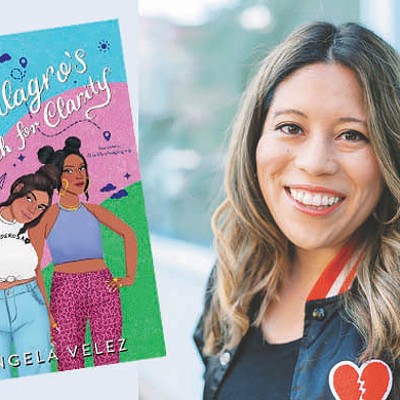In Clare Beams’ debut story collection, We Show What We Have Learned (Lookout Books), characters struggle with change, loss and rejection, in settings including a plague-ravaged Europe, a secretive all-girl boarding school, and the mysterious healing waters of New England. Joyce Carol Oates has called Beams “[a] female/feminist voice for the 21st century.” Beams’ book-launch party is Oct. 25 at White Whale Bookstore (formerly East End Book Exchange). Beams spoke with CP by phone from her home in Edgewood.
You’ve been compared to Alice Munro, Shirley Jackson and Margaret Atwood. How did you react?
I couldn’t believe it. Those are books and stories that shaped me not just as a writer but the way that I look at the world. So that just felt like a really huge gift.
Many of your stories have surreal elements. Yet those with regular human emotions and situations can be just as haunting. What does that say about your characters, and also about reality and imagination?
I don’t think of myself as exclusively a surreal writer. But I do feel there has to be something that feels sort of magical — whether that’s in the setting, or the actual place, or the time period, or … the extremity of the situation that the characters find themselves in. I think life is pretty strange enough.
In one of your stories, a character says, “[words can] change you, if you let them … if you want them to.” How do words affect characters in your book, and how has writing these stories changed you?
In “The Renaissance Person Tournament,” the teacher character ends up telling this dramatic lie to this student that she loves in order to try to save her. And I think that the telling of that lie changes her, and makes her see herself in a different light. In terms of the way that the stories have changed me — when I write … you’re almost dreaming while you’re doing it. It’s not exactly the rational part of your brain in charge. I will look back and read something that I wrote and be like, “I do think that. That is a thing I think about the world.” The stories perhaps change me in that they make me look at things that I probably always thought, or always knew, but never acknowledged.


















